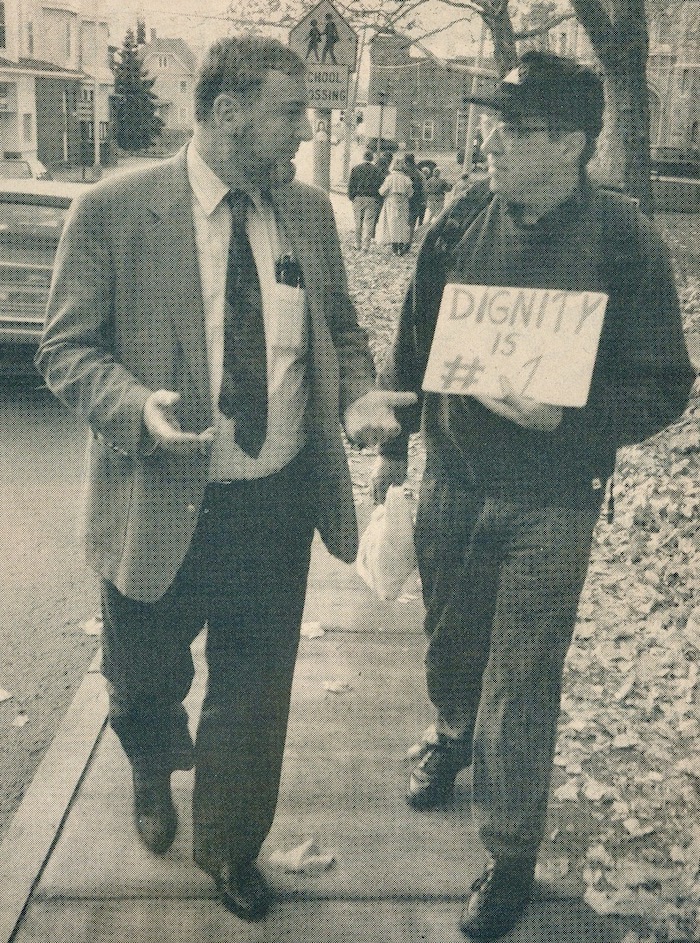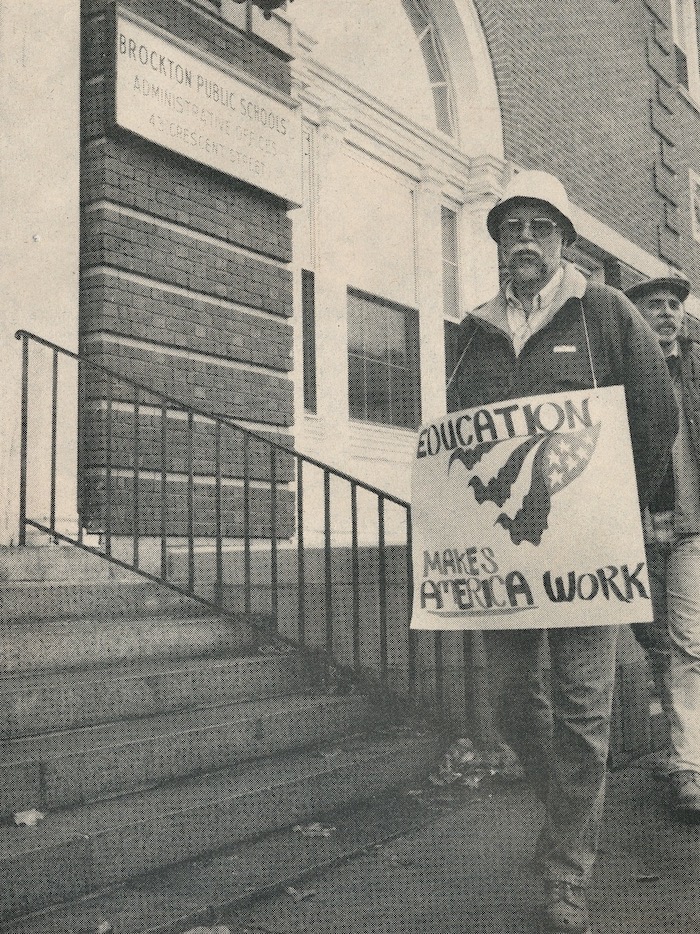Brockton
Budget cuts lead to 1993 Brockton strike

The threat of fines and jailings won’t bring us to our knees.
In the fall of 1993, Brockton Education Association members were “frustrated by more than a decade of budget cuts and more than 400 days without a contract,” according to MTA Today. They were especially angry over the district’s plan to require BEA members to pay more for health insurance after years of low pay and deteriorating working conditions. They engaged in a series of escalating actions that included nine days of strike activity.
The first step occurred on Oct. 26 when BEA members attended a midday rally and delayed returning to the school buildings for required professional development. The Massachusetts Labor Relations Commission deemed that to be an unlawful work stoppage. The School Committee also sought to have the MLRC rule that a threatened strike vote on Nov. 4 was illegal, but that bid was rejected.
With no resolution in sight, the BEA members went on strike for seven work days, from November 12-22.The strike ended when the School Committee agreed not to increase the employees’ health insurance premium share and offered three years of salary increases.
Inadequate school resources were at the root of many of the strikes in the 1980s and 1990s. In 1993, the Massachusetts Supreme Judicial Court ruled in the MTA-led McDuffy v. Robertson school funding case that the state was not meeting its constitutional obligation to adequately educate all students. Three days later, the governor signed the Massachusetts Education Reform Act. It included a new formula, called the Foundation Budget, that required significant increases in state funding for public schools, especially in low-income districts.
The school funding case was originally filed in 1978 on behalf of students in districts that lacked the resources to adequately fund their own schools. Although the plaintiffs had to change several times as students graduated from high school, the lead plaintiff was always from Brockton.
You truly had kids that would come in and sit on the radiators. You had books falling apart. You didn’t have materials. You didn’t have supplies.

